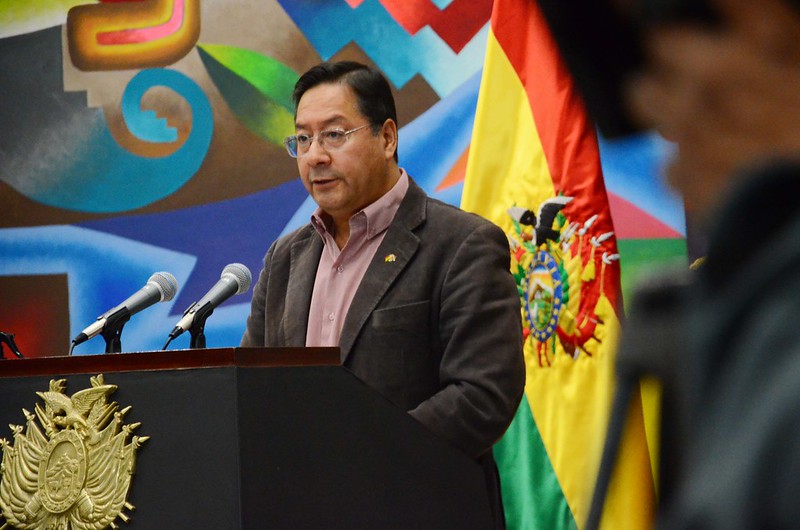President Arce and his Plan for Bolivia’s Development

On September 21, 2022, the President of Bolivia, Arce Catacora, gave a lecture at Yale University before participating in the United Nations General Assembly meeting in New York. Speaking to a small room of students and faculty, President Arce presented macroeconomic data from Bolivia’s last 20 years, noting successes during the 15-year reign of his political party, Movimento al Socialismo (MAS). Throughout his lecture, he emphasized a focus on resource extraction as the primary engine behind the country’s short and long-term growth.
About President Arce
President Arce began in a celebratory tone, comparing the successes of MAS’ socialist model compared to the “neoliberalist model” which existed before it. He noted that between 2006 and 2019, the years in which his party held power, GDP per capita grew by 4.7% compared to 3% from 1985 to 2005. He also spoke about Bolivia’s success in distributing those gains fairly, raising the income of the bottom 40% by 12.5% and adopting what he labeled a “democratization of the economy.”
Additionally, he stressed Bolivia’s financial stability, pointing out the country’s low levels of external debt. Drawing from data collected by the central bank, President Arce drew the crowd’s attention to the external public debt prior to the presidency of MAS’ Evo Morales, which reached a historic high of 63% of GDP in 2003. He then noted that after 2006, Bolivia’s external debt never rose above 33%, sitting at 28.9% of GDP under his administration.
Responding to critics of his “economic social communitarian productive model” he highlighted the continual growth of businesses in Bolivia as a sign of sustainable development. Beginning in 2005, Bolivia saw more than 250,000 companies originate over the course of 14 years, with smaller growth during the pandemic years. Going out of his way to address concerns over private investment under the socialist model, he claimed Bolivia had found a viable way to mix state involvement in the economy with entrepreneurship.
Bolivia’s Challenges
Although Arce’s presentation portrayed the last 20 years in an overwhelmingly positive tone, it omitted many of the challenges that Bolivia faces. Although his model is based upon natural resource extraction, with Bolivia’s primary resource being natural gas, this cannot keep up with the rate of growth of the Bolivian economy. In fact, Bolivia has already become a net importer of hydrocarbons, at a time when energy prices are at historic highs.
The Environment
In addition, Bolivia grapples with numerous environmental issues, including poor management of its portion of the Amazon rainforest. President Arce announced in July 2022 that he would be investing in palm oil to increase the country’s energy output, something that is both inefficient and environmentally harmful. Furthermore, Arce’s administration did little to quell the massive fires in Bolivia’s Chiquitania region, and his political predecessor Evo Morales actually signed a decree in 2019 making it easier for agribusiness to exploit the land. This is a far cry from his speech at Yale, in which he promised to “respect mother earth” after a question from a faculty member.
Human Rights Issues
The Justice System
Even within Bolivia, others have accused Arce and his party of tampering with the justice system for political gain. In June 2022 former interim president Jeanine Anez received a 10-year sentence in prison for plotting a coup, despite her rise to Bolivia’s supreme court upholding the president. Prosecutors claim she was part of a plan to remove President Evo Morales from office in 2019, despite the fact that she did not participate in the largely peaceful protests which led to his resignation. Anez claims her imprisonment is a purely political affair, designed to legitimize MAS after its fall from power after allegedly committing fraud to win the 2019 presidential election.
Looking Ahead
President Arce’s economic model has proven that it can succeed, and his presentation is a testament to the fact that Bolivia’s growth under nearly 20 years of MAS rule has been truly unprecedented. However, it does not take away from Bolivia’s murky future, and dubious record with human rights. The country has the economic potential to develop strongly, but strong political and environmental protections still remain uncertain.
– Samuel Bowles
Photo: Flickr
